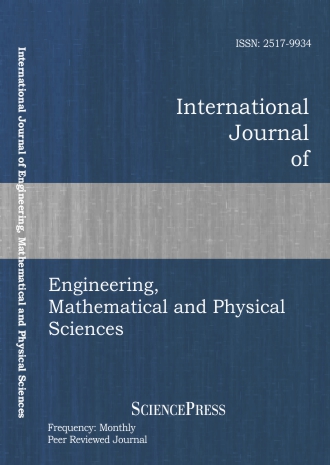
Scholarly
Volume:3, Issue: 7, 2009 Page No: 488 - 490
International Journal of Engineering, Mathematical and Physical Sciences
ISSN: 2517-9934
1237 Downloads
A New Derivative-Free Quasi-Secant Algorithm For Solving Non-Linear Equations
Most of the nonlinear equation solvers do not converge always or they use the derivatives of the function to approximate the root of such equations. Here, we give a derivative-free algorithm that guarantees the convergence. The proposed two-step method, which is to some extent like the secant method, is accompanied with some numerical examples. The illustrative instances manifest that the rate of convergence in proposed algorithm is more than the quadratically iterative schemes.
Authors:
References:
[1] K.E. Atkinson, An Introduction to Numerical Analysis, 2nd ed., John